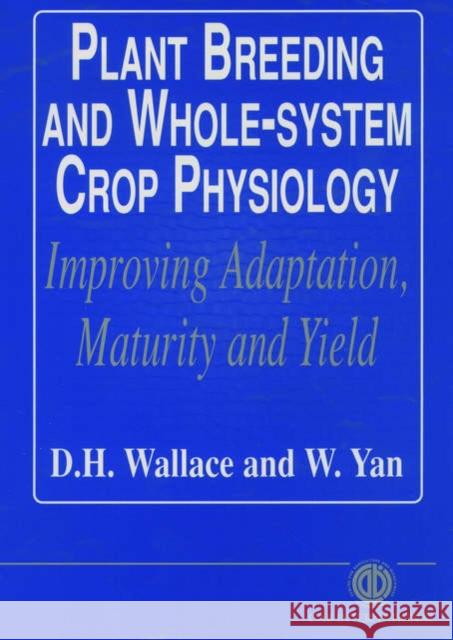Plant Breeding and Whole-System Crop Physiology: Improving Adaptation, Maturity and Yield » książka
Plant Breeding and Whole-System Crop Physiology: Improving Adaptation, Maturity and Yield
ISBN-13: 9780851992655 / Angielski / Twarda / 1998 / 416 str.
Improvements in adaptation and maturity leading to greater yield are the most important criteria for the acceptance of a new crop cultivar, since it is the yield which dictates the economic value of the crop. Therefore, yield improvement is one goal of virtually every crop breeding program. Many such programs have tended to concentrate on identifying the genetic traits responsible for higher yield and selecting each of them in the later stages of the breeding cycle. However, selection for yield per se is still the most effective method, since it is a combination of traits, operating within the limits of the system, which finally determines yield.
This book presents a whole-system, or holistic viewpoint for the improvement of adaptation, maturity and yield. Central to its thesis is recognition that system-established changes in levels of the components of the plant system, within a constant capacity, i.e. within the limitations of the system, determines yield and other cultivar characteristics. It goes on to describe how this can improve our understanding of plant systems and enable breeders to maximize performance under prevailing field conditions. Based principally on 25 years of research by the authors, the ideas presented in this book are essential reading for crop physiologists and plant breeders.











